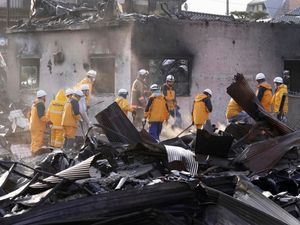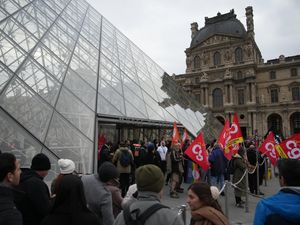Survivors found in homes as Japan earthquake death toll hits 100
The number of missing was lowered to 211 as of Saturday after it increased two days ago.

The death toll from a major earthquake in western Japan reached 100 on Saturday as rescue workers fought aftershocks to pull people from the rubble.
Deaths had reached 98 earlier in the day, but two more deaths were reported in Anamizu while officials in the hardest-hit Ishikawa prefecture held their daily meeting.
Some survivors who had clung to life for days were freed from collapsed homes with a man pulled out 72 hours after the series of powerful quakes started on Japan’s western coast with a 7.6 magnitude tremor on Monday.
The number of missing was lowered to 211 on Saturday after shooting up two days ago.

Ishikawa officials said 59 of those who died were in the city of Wajima and 23 were in Suzu, while the others were reported in five neighbouring towns. More than 500 people have been injured, at least 27 seriously.
The earthquake research institute at the University of Tokyo found the sandy coastline in western Japan had shifted by up to 820 feet seaward in some places.
The earthquakes set off a large fire in the town of Wajima, as well as tsunamis and landslides in the region. With some routes cut off by the destruction, worries have grown about communities in which water, food, blankets and medicine had yet to arrive.

The US announced 100,000 dollars (£78,600) in aid on Friday, including blankets, water and medical supplies and promised more help would come. Los Angeles Dodgers baseball player Shohei Ohtani also announced aid for the Noto area, although he did not disclose the amount.
Thousands of Japanese troops have joined the effort to reach the hardest-hit spots on the Noto Peninsula, the centre of the earthquake which is connected by a narrow land strip to the rest of the main island of Honshu.
Experts warned of disease and even death at the evacuation centres that house about 34,000 people who lost their homes, many of them elderly.
On Friday, running water was not fully restored in Anamizu. Kato had to get water from a nearby river to flush the toilet.
Dozens of aftershocks have rattled Ishikawa and the neighbouring region in the past week. Japan, with its crisscrossing fault lines, is an extremely quake-prone nation.
Weather forecasts called for rain and snow over the weekend and experts warned of more aftershocks.





